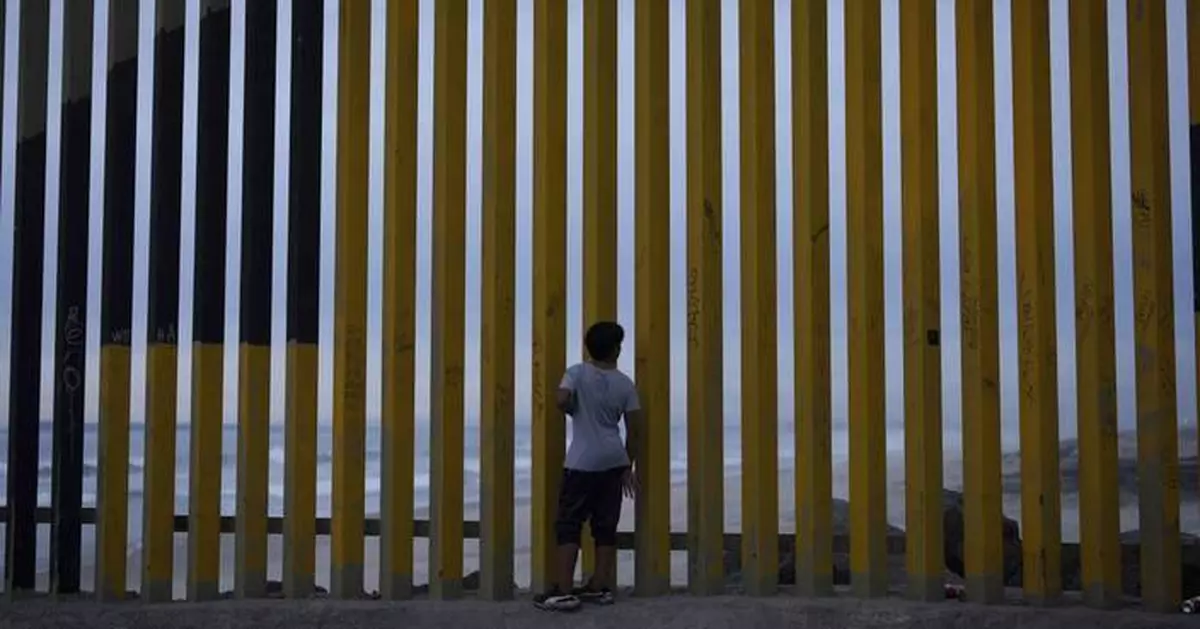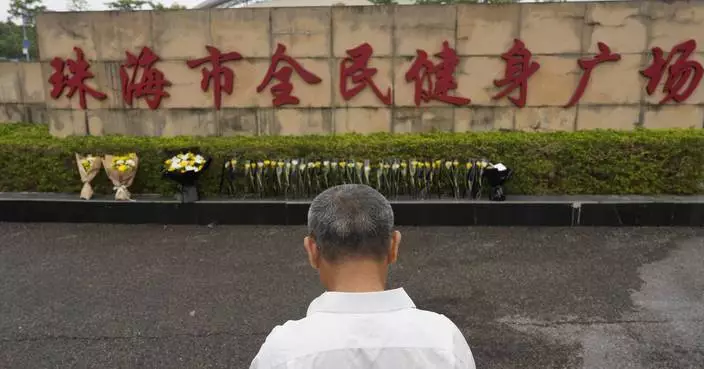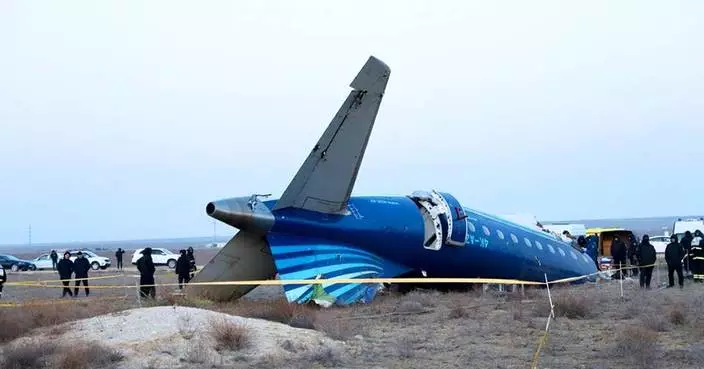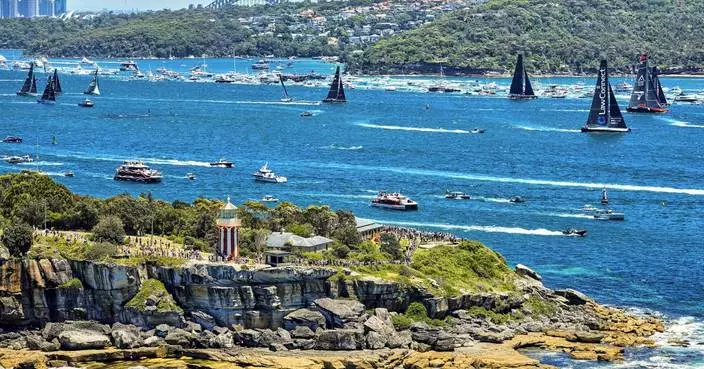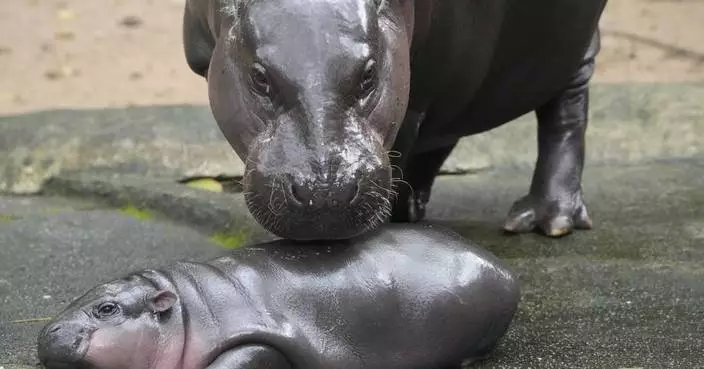McALLEN, Texas (AP) — U.S. Immigration and Customs Enforcement deported more than 270,000 people to 192 countries over a recent 12-month period, the highest annual tally in a decade, according to a report released Thursday that illustrates some of the financial and operational challenges that President-elect Donald Trump will face to carry out his pledge of mass deportations.
ICE, the main government agency responsible for removing people in the country illegally, had 271,484 deportations in its fiscal year ended Sept. 30, nearly double from 142,580 in the same period a year earlier.
It was ICE's highest deportation count since 2014, when it removed 315,943 people. The highest it reached during Trump's first term in the White House was 267,258 in 2019.
Increased deportation flights, including on weekends, and streamlined travel procedures for people sent to Guatemala, Honduras and El Salvador fueled the increase, ICE said. The agency had its first large flight to China in six years and also had planes stop in Albania, Angola, Egypt, Georgia, Ghana, Guinea, India, Mauritania, Romania, Senegal, Tajikistan and Uzbekistan.
Mexico was the most common destination for deportees (87,298), followed by Guatemala (66,435) and Honduras (45,923), the report said. Mexico and Central American countries are expected to continue to bear the brunt of deportations, partly because those governments more readily accept their respective citizens than some others and logistics are easier.
Still, ICE's detention space and staff limited its reach as the number of people it monitors through immigration courts continued to mushroom. The agency's enforcement and removals unit has remained steady at around 6,000 officers over the last decade while its caseload has roughly quadrupled to about 8 million people.
Spagat reported from San Diego.
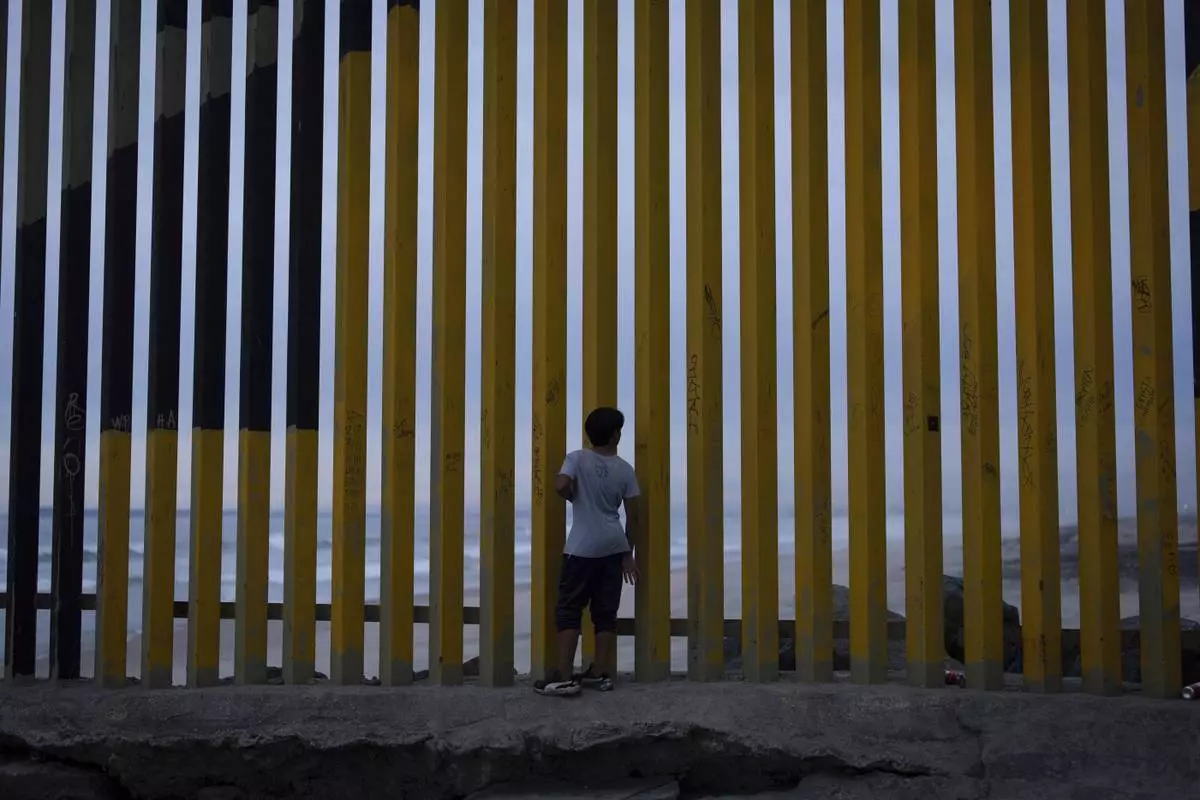
FILE - A boy looks through a border wall separating Mexico from the United States, Nov. 26, 2024, in Tijuana, Mexico. (AP Photo/Gregory Bull, File)
BELGRADE, Serbia (AP) — Serbian university students left piles of old school books outside the education ministry building on Friday as part of almost daily street protests demanding accountability over the collapse nearly two months ago of a concrete canopy that killed 15 people in the country's north.
Scattered traffic blockades were also held on various locations throughout Serbia at 11:52 a.m. — the exact time that the concrete construction on the front of the railway station building in Novi Sad crashed onto the people below. The traffic blockades have been held every Friday since the Nov. 1 crash, lasting 15 minutes for the 15 victims.
Many in Serbia blame the collapse on widespread corruption and sloppy work on the railway station building in the city of Novi Sad that was twice renovated in recent years as part of questionable mega projects involving Chinese state companies.
Persistent protests in Serbia reflect widespread anger at the accident but also wider discontent with the rule of populist President Aleksandar Vucic and his government. Tens of thousands joined a big rally last Sunday in Belgrade led by the university students.
Prosecutors have arrested 13 people over the Novi Sad tragedy, including a government minister whose release later fueled public skepticism about the honesty of the investigation.
Striking university students have garnered support from various walks of life, challenging the tight grip on power of Vucic's government. The movement's symbol — a red handprint telling authorities they have blood on their hands — has been used by actors, farmers and others backing the protests.
In Belgrade, more than 2,000 students marched to the education ministry. A speaker told the crowd that “we are sick of being called political mercenaries and attacked in the streets.”
In Novi Sad, a student rally criticized the way the state-run RT Vojvodina reports about the protests and the canopy collapse.
Populist officials and the pro-government mainstream media have described the protests as a ‘hybrid war’ against Vucic under the orders of foreign intelligence services. Though Serbia is formally seeking European Union membership, Vucic has faced accusations of curbing democratic freedoms rather than advancing them.
University students in neighboring Bosnia’s capital, Sarajevo, and the northwestern town of Banja Luka on Friday gathered in support of their Serbian colleagues and to draw attention to problems in their own country.

People stopping traffic, stand in silence during ongoing protests that erupted after a concrete canopy fell last month and killed 15 people, in front of the state-run TV headquarters in Belgrade, Serbia, Friday, Dec. 27, 2024. (AP Photo/Darko Vojinovic)
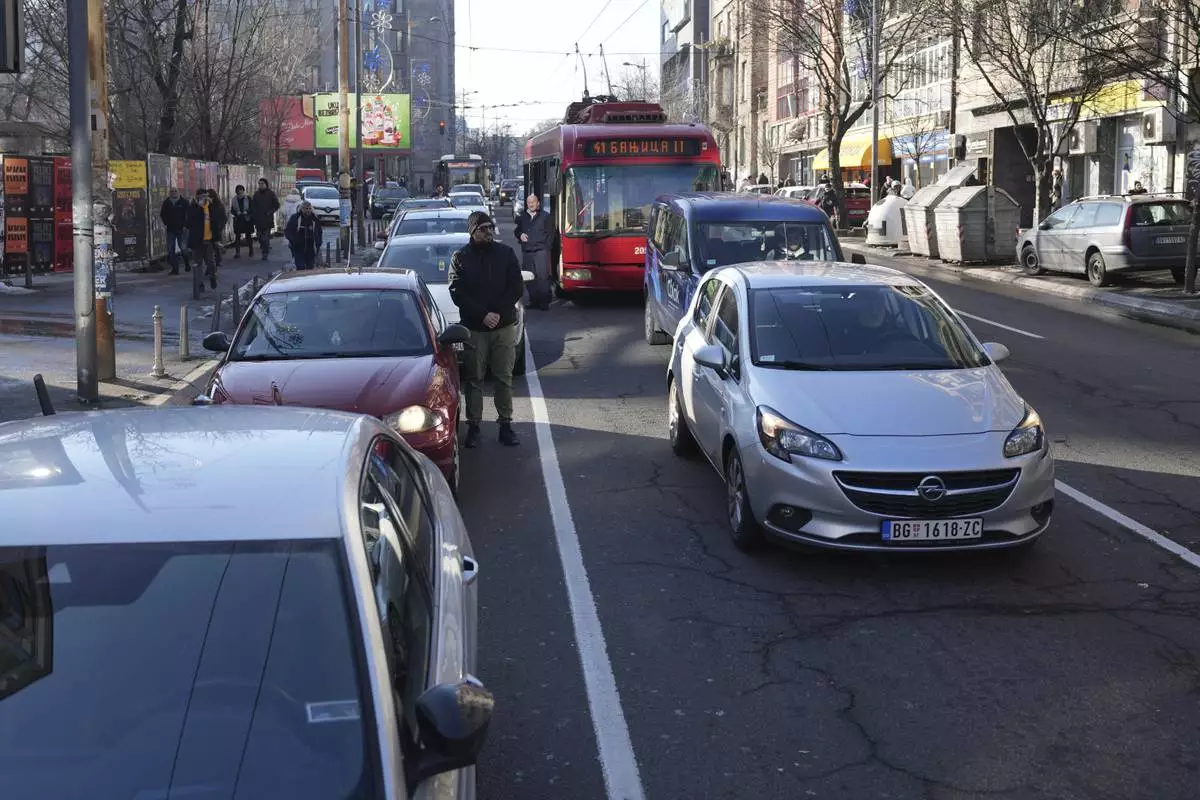
Cars sit in traffic, as activists block the road during ongoing protests that erupted after a concrete canopy fell last month and killed 15 people, in front of the state-run TV headquarters in Belgrade, Serbia, Friday, Dec. 27, 2024. (AP Photo/Darko Vojinovic)



